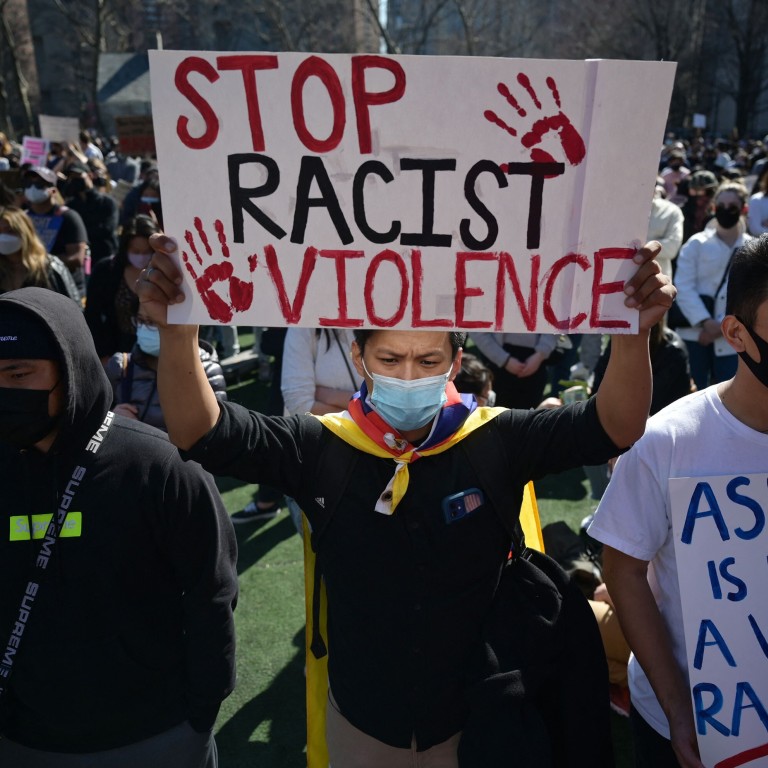
Asian-Americans confront mental health crisis amid rise in racist attacks
- Asian-Americans have been the target of unprovoked attacks in the United States
- Expert says ‘we’re experiencing a collective trauma’ as violent atmosphere takes toll
Eric Yung and his aunt, Patricia Lee, have seen a lot from their vantage point at Union Square Flowers, the stand they run just off Market Street in San Francisco. But last month, when the two saw a man rush by with a large knife in his grip, they knew there was going to be trouble.
“You try not to think about it. You don’t want to be paranoid,” Yung said. He nodded toward his aunt. “Sometimes I do feel afraid – but more for my family.”
Asian-Americans, no longer silent, stand up in the face of attacks
Asian-American community advocates say the mental health toll of such incidents, which have spiked during the pandemic, is rampant and devastating – especially for the community’s elderly, who were already suffering the effects of isolation after months of a nationwide shutdown.
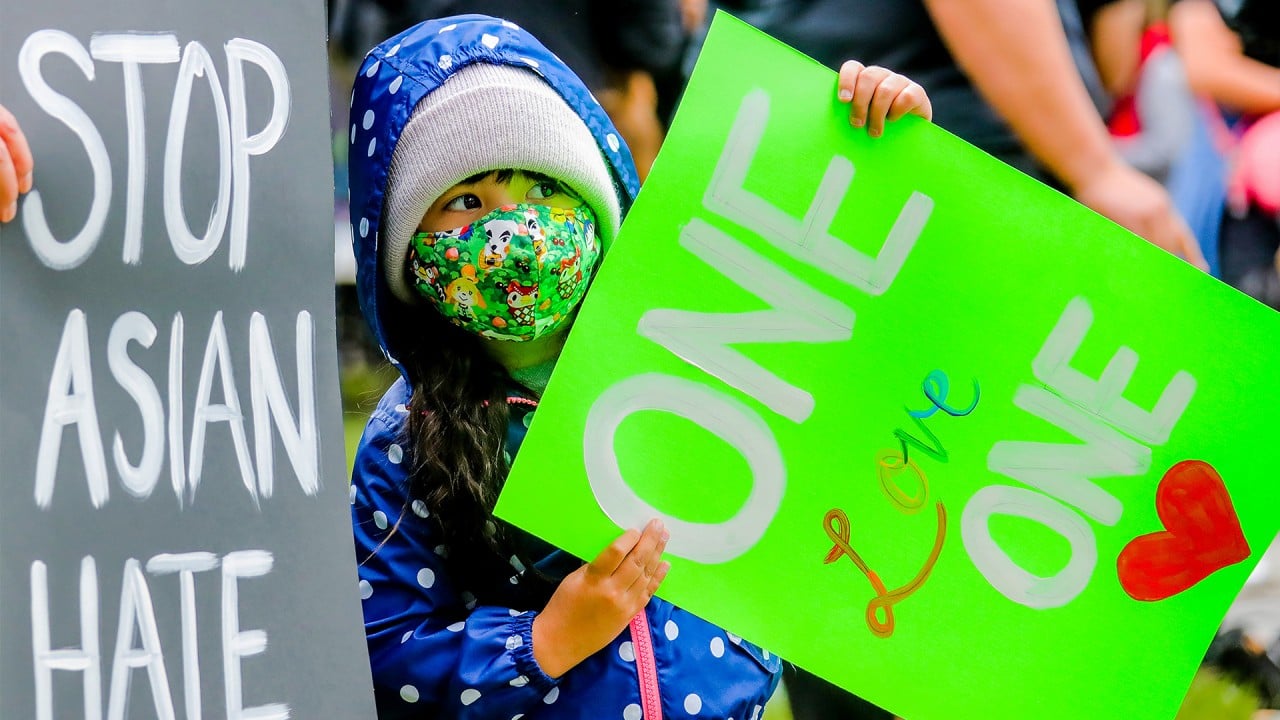
03:29
Surge in anti-Asian attacks in the US sparks discussions on mental health impacts
Now, a recently released report shows that, among other things, Asian-Americans were more stressed by the atmosphere of violence and hate than by the pandemic itself, despite disproportionately high rates of long-term unemployment and health effects brought on by the contagion. Last fall, Asian-Americans in San Francisco accounted for nearly 40 per cent of Covid-19 deaths despite comprising just 12 per cent of all positive cases.
According to the report, Asian-Americans who experienced racism during the pandemic display heightened symptoms of depression, anxiety and stress – and one in five show signs of racial trauma, the psychological and emotional harm caused by racism.
The report from San Francisco’s Stop AAPI Hate Centre compiled findings of three independent national studies, conducted between April 2020 and March 2021, gauging the mental health impacts of anti-Asian racism during that time.
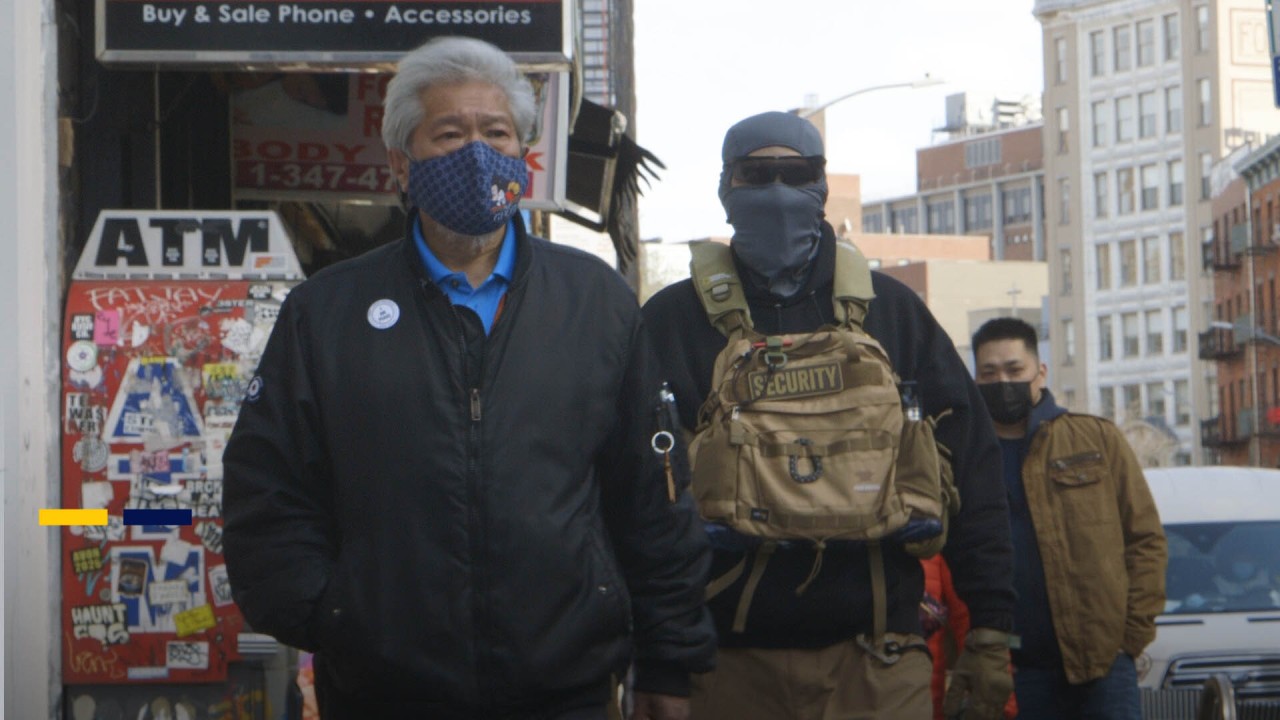
03:59
New Yorkers escort elderly and form street patrols to combat anti-Asian attacks
Stop AAPI Hate received more than 6,600 hate incident reports on its website between March 2020 and March 2021, a figure advocates note is likely an undercount. About two-thirds of the incidents involve verbal harassment, with physical violence accounting for another 12 per cent of the tally.
Arrest made after attack on Asian-American Lyft driver caught on video
About 30 per cent of those reporting were between 26 and 35 years old, representing the largest age category compared to those 61 and older (6.6 per cent) and youth 17 and younger (11 per cent).
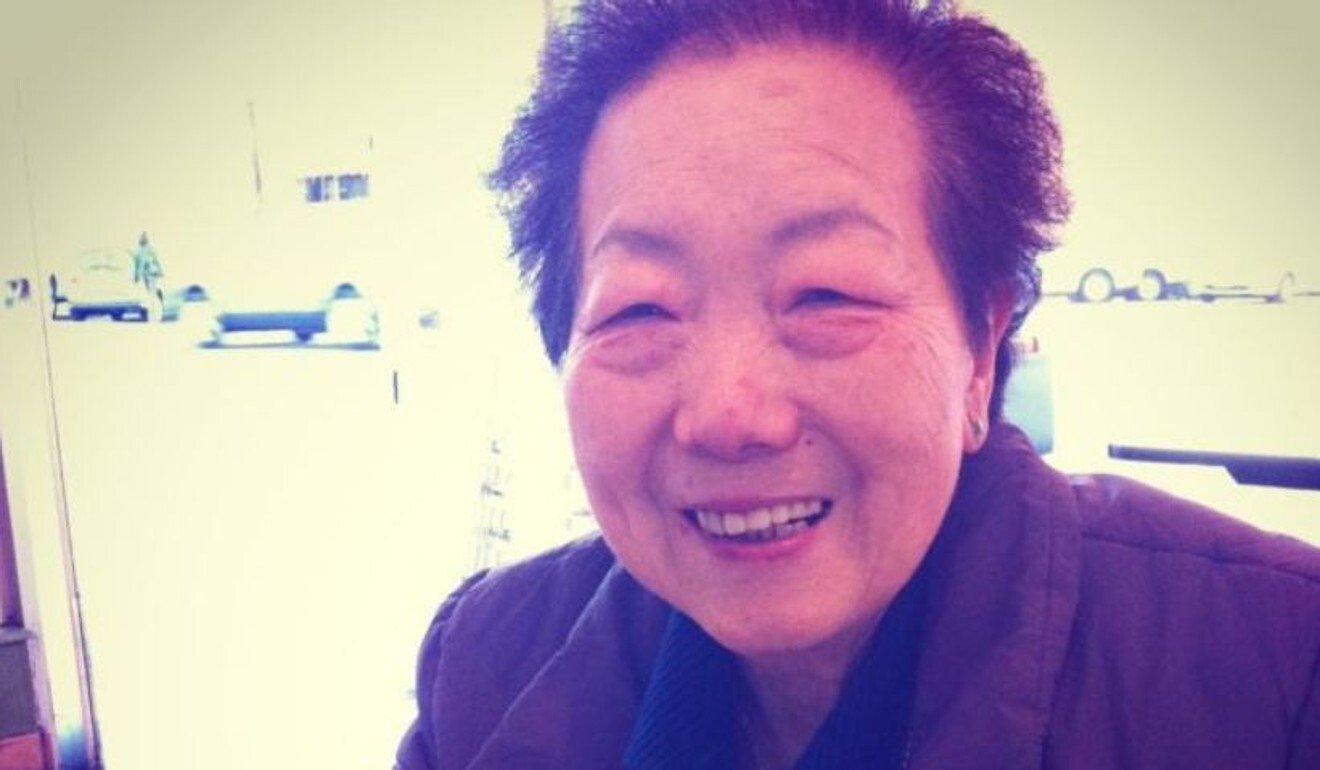
“We have never seen violence happening against our seniors like it’s happening now,” said Anni Chung, president and CEO of Self-Help for the Elderly, a 55-year-old San Francisco agency providing social services to largely low-income, immigrant elders, many of whom she said have abandoned their ritual morning strolls.
“Our seniors love their morning walks,” Chung said. “That’s their enjoyment, going out to Golden Gate Park and walking for an hour, or doing tai chi. But all this exercise just stopped.”
The Market Street stabbings are the latest act of violence against Asian-Americans to weigh on her clients’ psyches, she said.
“The fear is real,” Chung said. “They’re staying home, not going out for groceries or even fresh air. So we worry for both the physical and mental health of our seniors.”
Doormen fired for not helping Asian-American woman stomped on in New York
Advocates said the resulting trauma, along with cultural attitudes about mental health, prevent many from seeking help and places them at greater risk for long-term harm as heightened anxiety and feelings of helplessness affect peace of mind and reduce social connections.
The situation has unnerved a population typically prone to lower levels of psychological distress and mental health treatment compared with other racial and ethnic groups. As a result, service providers are seeing an unprecedented demand that advocates fear community resources aren’t equipped to handle.
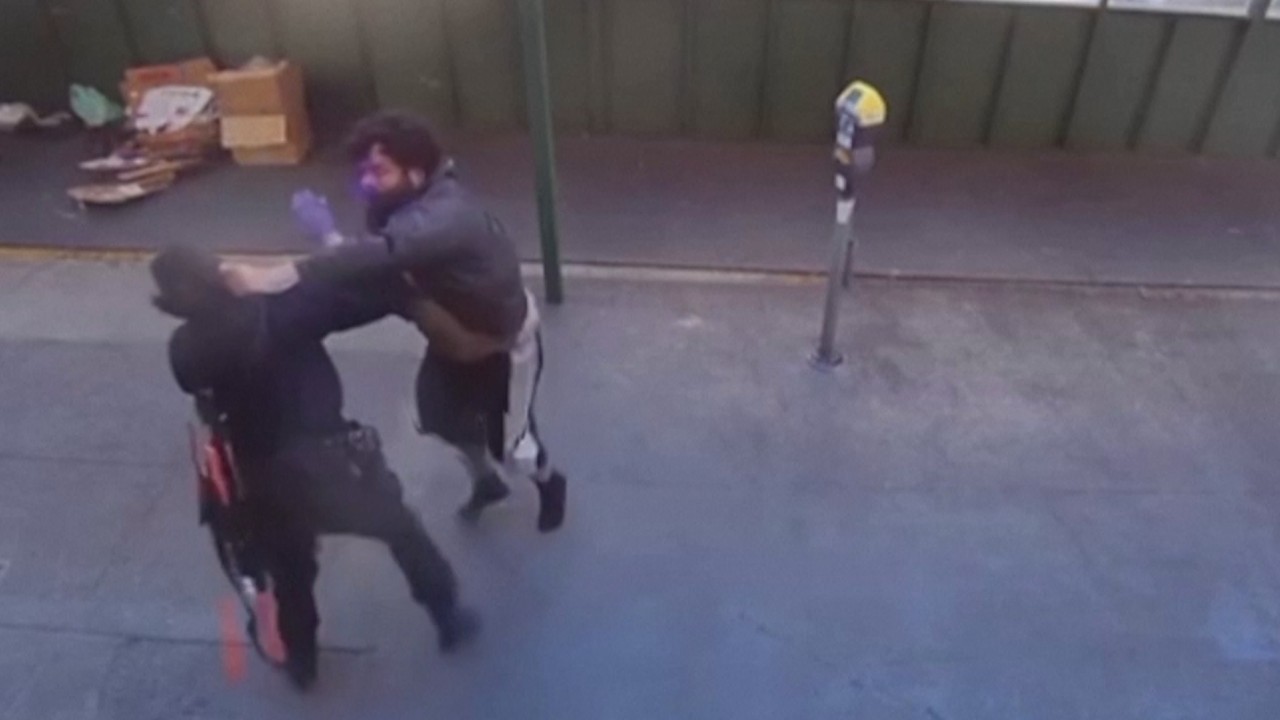
02:12
Asian-American policewoman attacked in San Francisco in possible hate crime
“We are looking at potentially a fourfold increase in anxiety and depression,” said Anne Saw, an associate psychology professor at Chicago’s DePaul University who was among the report’s lead researchers. “Racism is not something that happens and people brush it off. It affects them psychologically. People are still reporting symptoms nine months later. That’s a really important takeaway.”
While Asian-Americans in the United States have experienced racism for more than a century, last year’s political rhetoric about the origins of the coronavirus inflamed sentiments to a degree not seen in decades.
Man charged for throwing rocks at Asian-American woman and child
“What really strikes me is how Asian-Americans who experience racism say that’s their greatest stressor, more so than a pandemic that’s killed hundreds of thousands of people,” said Asian-American studies professor Russell Jeung of San Francisco State University, whose work tracking pandemic-related xenophobia and racism inspired the launch of the Stop AAPI Hate Centre. “For people to be more fearful of other Americans shows how traumatising that is.”
As a result, he said, Asian-Americans were worried about themselves, about their children’s safety as they send them back to school, and about their elders, who have self-isolated even further.
“We’re experiencing a collective trauma,” Jeung said. “You can see your grandparents in the people being attacked.”

